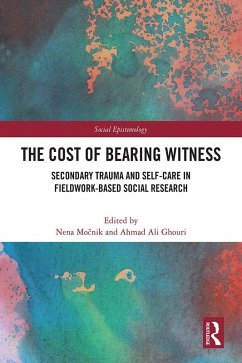This highly interdisciplinary volume fills the gap in research ethics that has so far omitted to address the psychological, physiological, and socio-political impacts on researchers conducting field-based social research in traumatic environments.
Dieser Download kann aus rechtlichen Gründen nur mit Rechnungsadresse in A, B, BG, CY, CZ, D, DK, EW, E, FIN, F, GR, HR, H, IRL, I, LT, L, LR, M, NL, PL, P, R, S, SLO, SK ausgeliefert werden.


